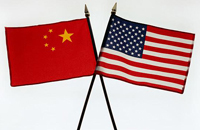
Big changes may mean big turnover amid service transition
Expect to lose a big chunk of your staff once you dive into the cultural-change process, warn executives of companies that have made the leap successfully. For example, during United Airlines’ reorganization and overhaul of airport services, many supervisors accustomed to the old ways of doing business were unsettled. Some initially fought the changes, eventually deciding to come onboard. Others, unable to make the leap, quit. Services-savvy PetSmart opened its own dog grooming school when it decided to provide the service in its stores but lacked the skilled manpower. IBM Global Services lost customer service reps who were unwilling or unable to cross-train in hardware/software. The cultural transition can be a rough and painful journey, the experts agree — but in the end it’s worth it.





